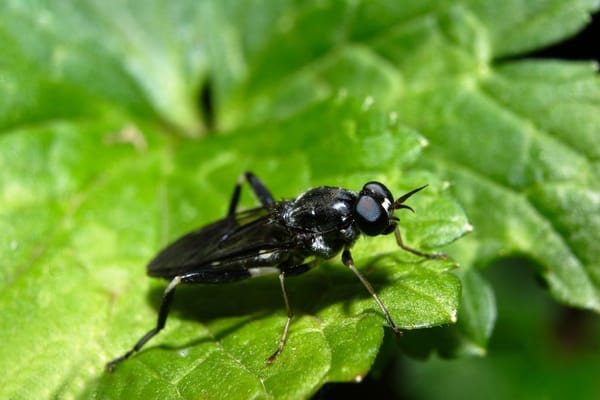
Textile Applications
Arda Biomaterials
Arda Biomaterials is poised to revolutionize sustainable materials with New Grain™, an alternative leather derived from brewers’ spent grain (BSG).

Textile Applications
Arda Biomaterials is poised to revolutionize sustainable materials with New Grain™, an alternative leather derived from brewers’ spent grain (BSG).

Blog
Ireland-based Hexafly offers sustainable food and fertilizer solutions, utilizing Black Soldier Fly larvae to produce protein and other byproducts. Yup, you read that correctly: Black soldier fly larvae. Hexafly operates Ireland’s only vertical insect farm, specializing in the Black Soldier Fly to convert food waste into valuable products like

Blog
Inspired by ocean microorganisms that convert methane and CO2 into polyhydroxybutyrate (PHB), Newlight Technologies embarked on a mission to replicate this process to produce high-performance, cost-effective biomaterials. The result is a unique, circular, and versatile biomaterial material called Air Carbon. Characteristics and Applications of AirCarbon AirCarbon is not just another

Blog
Salt Lake City-based WNDR Alpine is redefining the outdoor industry with its high-performance, eco-friendly ski equipment. The company’s innovation lies in its application of biology, polymer chemistry, and materials science to achieve unique performance advantages in its backcountry skiing and riding gear. Partnering for Performance: Checkerspot Collaboration WNDR Alpine
materials
BioFoam® is a durable and versatile material made from polylactic acid, which can be industrially composted. It has properties comparable to EPS and can be used for both molded and cut products. BioFoam® is suitable for protective packaging solutions and can be customized for various applications. It is made from
materials
Green-Line Wire Rope Lubricant, from Visco Inc. in Lincoln, Nebraska, is an environmentally safe and biodegradable lubricant made from plants grown in North America. It protects wire ropes against rust, wear, and moisture, extending their lifespan. This bio-based lubricant has a strong natural attraction to metal, making it ideal for
materials
EcoAir® Biobased CLP from Cortec is a non-toxic, environmentally friendly cleaner/lubricant/protectant. It comes in a recyclable steel can and is made with a canola oil base. This product provides excellent penetrating, lubricating, and rust-preventing action for industrial, shop, and home use. It can be used for various applications
materials
PuraSurf is a line of waste-derived biosurfactants from Dispersa for household, industrial, and institutional cleaning products. These natural and affordable ingredients are made in Canada and offer several benefits. They are 1,4-Dioxane and sulfate-free, palm and petroleum-free, 100% biodegradable, and ethically-sourced from waste feedstock. The first product in the
materials
Dynagard Green from the Kirkpatrick Group is a biobased and biodegradable alternative to barium grease for drill rod applications. This premium lubricant exhibits superior bonding to metal surfaces, thanks to the polarity of its natural esters. Its balanced blend of elastomeric and polymeric tackifiers ensures robust adhesion to both wet
materials
BioBlack TX, developed by Nature Coatings, is a certified 100% bio-based dispersion offering an alternative to conventional carbon black. Derived from wood waste sourced from lumber, paper, furniture, and flooring industries, this dispersion aims to address environmental concerns associated with traditional carbon black. BioBlack TX’s sourcing strategy utilizes pre-consumer
materials
DAPRO BIO 400 is a highly efficient replacement for glycol coalescence solvents in architectural and industrial coatings from Elementis. This material minimum film formation temperature of aqueous binder emulsions. Produced from biomass derived from agricultural wastestream, its high efficiency provides a route to lower formulation VOC via lower use levels.
materials
METNIN RESIN formulations are great at replacing phenol in thermosetting and phenolic resins. Furthermore, the use of METNIN can reduce or even eliminate the need for formaldehyde and allow for fully bio-based solutions. Typical applications include adhesives, laminates, and composites. Also, METNIN RESIN is a good replacement for expensive synthetic